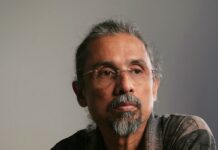The mere fact that such a question has risen is an indicator of the underlying issue. Is there anyone who hasn’t enjoyed pre-marital sex? What could possibly be the connection between marriage and sex in the first place? The core issue of the matter of discussion is derived from the 1940’s Victorian roots. The shift in the discourse of sex commences in the 1960’s. As a result of the introduction and advancement of contraceptive methods a distinction is drawn between sex and reproduction. People began to indulge in the pleasure of sex until the discussion on HIV risks started making its way through. Religious institutions, in spite of their ideological differences, unanimously work towards one common cause, which is the suppression of sex and sexual desire. Despite the failures evident in religious institutions, they do not give up on this common cause. These religious institutions strongly and fanatically stand against the legalization of abortion yet hypocritically burn down condom manufacturing machines, quite literally.
At this particular point of time over 75% of the population in a Western country have had sexual encounters. Hypothetically, the statistic should be quite similar in Sri Lanka, if proper research and surveys were carried out. It is almost strange to encounter a person who has not enjoyed the bliss of pre-marital sex. It is perceived more of a disqualification rather than a qualification.
Though there’s an opinion that this welcoming perception on pre-marital sex was a disastrous thought of the 1960’s, research shows that this situation had persisted even in the 1940’s, the difference lies in the society’s reluctance to openly accept it.
The reason to raise this matter of concern is a so-called medical opinion I encountered at a recently held discussion on sex education. At this discussion, a professional from the public health sector claimed that sex is solely for married couples and the prohibition of pre-marital sex should be internalized strongly into the society.
My initial query to this staggering opinion was the scientific basis behind it. We sort a scientific explanation only in circumstances that are devoid of our value system, which we refer to as “value-free”. Ironically, what we mostly believe as “scientific” has a traditional belief system behind it. Dr. Padeniya in Sri Lanka is a living testimony of this irony. Tissa Jananayake, a science instructor, is yet another classic example. Those involved in the discussion on unbiased science in Sri Lanka is just a handful.
There was once a time when science claimed that homosexuality is a disease, which was the belief in Sri Lanka until recent times. This claim is a completely non-scientific yet functioned as a scientific certification beneath the grip of religious claims. The prohibition of pre-marital sex is yet another instance of religion’s restrictive grasp on the value system of the society beneath the façade of science.
Marriage is not a scientific phenomenon but rather one which is completely cultural, also largely positioned in a heterosexual framework. Homosexual marriages are still not legalized in certain countries like Sri Lanka. By around 12 years a child begins to experience changes in sexual feelings through bio-scientific means yet the average age of marriage is 28 and beyond (Under-aged Muslim marriages being an exception). In such a situation the unnecessary and exaggerated imposition on chastity using the scientific façade to curtail pre-marital sex only leads to an indirect distortion of the discourse on virginity. It is very unfortunate and ironic that individuals who are professionally involved in propagating sex education are subject to such cultural blindness.
It is also ridiculous to be compelled to get married just for the sake of having “sanctioned sex”. The modern trend is such that marriage is no longer perceived as mandatory. The younger generation, especially the women have started questioning marriage as a necessity. Marriage no longer offers the younger generation the enticement it traditionally did. Yet no longer being interested in marriage does not definitely replicate the desire for sex.
Projects related to sex education in Sri Lanka is largely funded by foreign reproductive health programmes. These projects are carried out with the intervention and the monitoring of Government Medical officials. Though the original intention is to socialize accurate information, what eventually happens is an unnecessary imposition of culture that restricts the distribution of this accurate information. this tragic plight of sex education in Sri Lanka is one which is fed by religious institutions.
Implementing an abstinence- only education is considered to be illegal and a violation of human rights in certain countries. The abstinence-only education is one which is proven to be unsuccessful through extensive research and on the other hand abstinence-only education is one which the American Judicial system believes is largely a curtailment of both the right for information and the right for sex of the young generation. Yet it still continues to be a norm in Sri Lanka.
It is believed that pre-marital sex causes unwanted pregnancies, sexually stimulated diseases, regret, depression and shame yet what we fail to understand is that these could all exist in any kind of heterosexual relationship. The bio scientific repercussions can be largely controlled by a use of a condom and the psychological and emotional repercussions are essentials for one’s maturity.
The absence of effective contraceptive methods in one great disadvantage in our context. Other than the use of a condom, the other contraceptive methods are largely centered around the woman. These methods meddle with a woman’s hormonal changes. Though these methods are somewhat effective, many women experience weight gain and mood swings as a result of these methods. The “morning after pill”, more commonly known as “Postinor”, is becoming quite popular among the youth. This indicates that the pill is used without much awareness since it is a pill meant to taken at an emergency and the frequent use of it could lead to adverse side-effects.
Hence the use of the condom seems to appear the probable option as it allows those involved in sex to enjoy the experience with comparatively less intensity but also with the least side effects.
Apart from this, it is claimed that some research shows how those who refrain from engaging in pre-marital sex are more inclined to be in long-term relationships, are comparatively more loyal and have a lower tendency of resorting to divorce. But these opinions were challenged and further research carried out suggest that these are distorted opinions. it is further stated that the number of individuals who have not engaged in pre-marital sex is becoming a significant minority and to arrive at such conclusions based on a minority is scientifically erroneous and flawed.
These restrictive opinions are making a negative impact. This mindset creates personalities that are highly dependent, less enduring and disturbingly insecure. This also would lead to troubled marital relationships with dissatisfied sex lives who blindly live in the marriage largely out of compulsion rather than love. This deprives us the luxury of choice and free-will.
Sex is an amazing experience. The release of dopamine and oxytocin through the indulgence of a sexual act help us be happier and build healthier inter-personal relationships. As we scroll through our newsfeeds in our social media platforms we excessively encounter political conflicts, insults, complaints, self-obsessive depictions, which are all consequences of sexual frustration. To engage in sex and acquire its positive and enriching benefits, sex has to be an act of meaning, if not it would only leave you with and empty and distressing feeling. Sex has to be experienced with its true essence of spirituality.
Sex should not be junk- sex, which like junk-food could lead to a dreadful life. It then becomes an act of consumption and a mere addiction- a momentary pleasure and an endless chase. Sex is meant to be experienced with a consciousness of both body and soul, one which is supposed to aesthetically fulfilling and enriching and that is what defines a healthy sexual experience.
Sex education then should function as an informational pathway that would facilitate a healthy sex life and not create a distorted and a diseased society.
Original Sinhala article by Chinthana Dharmadasa










